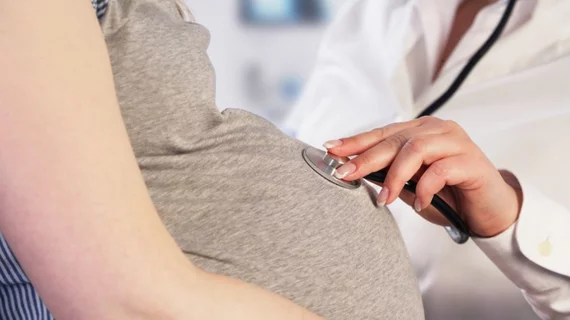Physicians support use of PET/CT scans in pregnant women with cancer, survey finds
Nuclear medicine physicians support the use of PET/CT scans in pregnant women with cancer, so long as exams are performed using appropriately low dosages.
Nearly 1 out of every 1,000 pregnant women receives a cancer diagnosis during her lifetime. And while PET/CT scans involve exposing a patient to ionizing radiation, they play a vital role in staging cancers, and the benefits should be weighed against the risks.
New survey results published recently in the Internal Medicine Journal shed light on how providers view the use of PET/CT in these particular circumstances.
The results come from 33 nuclear medicine physicians in Australia surveyed between May-July 2020, the majority of whom have over 15 years of experience in the field. Of the respondents, 27% had direct experience with pregnant patients with cancer. Of those who did not have any direct experience with the specified demographic, 56% answered “yes” when asked if they would consider PET/CT during a pregnancy, and 36% answered “maybe.”
All who were surveyed said scan modifications should be considered, with a reduction in radiotracer dose deemed the most important.
“Although expert guidelines tend to discourage the utilization of PET/CT in pregnancy, this position is based on uncertainty, rather than on firm evidence. Ultimately, the guiding principle ought to be a judicious balance between likely therapeutic benefit of PET/CT versus potential maternal and fetal harm from radiation exposure,” Pietro R, Di Ciaccio with the Department of Hematology at St Vincent's Hospital in Sydney, New South Wales, Australia, and co-authors wrote.
The study cited a multitude of factors that should be examined when weighing the benefits versus risks of PET/CT in pregnant women with cancer, including trimester and cancer staging.
Overall, research suggested that these scans pose little risk to an unborn fetus and could be valuable in the early treatment of these patients when completed using low dosages.
You can view the results of the survey here.

